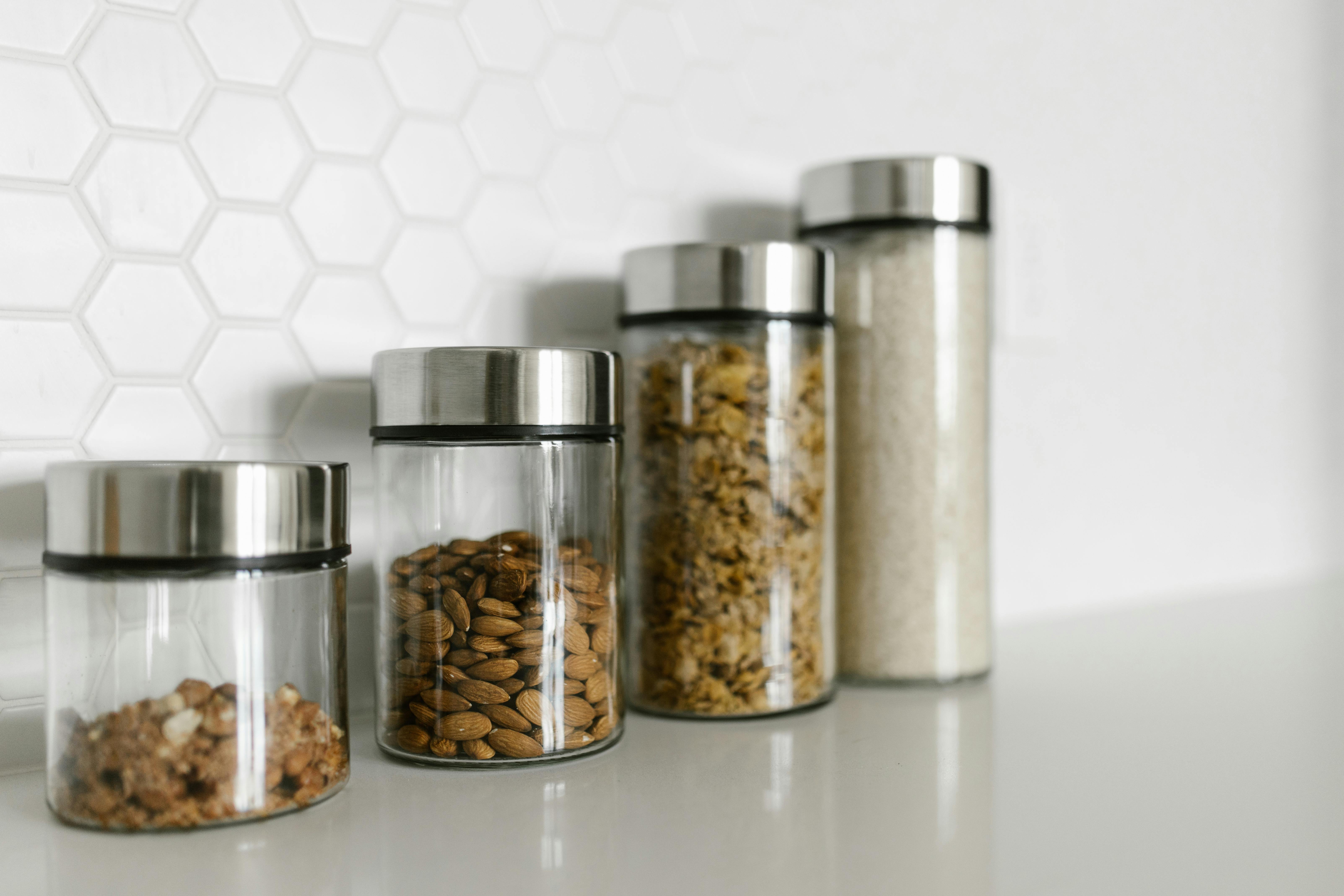Are Corn Nuts bad for your teeth? Corn nuts are a popular snack food, but many people worry about their impact on dental health. While it is true that they can be hard on your teeth, there are also ways to prevent or minimize any damage they may cause. In this article, we’ll discuss the potential effects of corn nuts on your teeth and what you can do to protect your oral health.
Do Corn Nuts Have Health Benefits?
Corn nuts, also known as toasted corn, have become a popular snack in recent years. They are made by deep frying whole corns, which gives them their crunchy texture and salty flavor. But do corn nuts have any health benefits?
The answer is yes, but it depends on the type of corn nuts you’re eating. Regular corn nuts contain a significant amount of fat and sodium, which are not ideal for most people’s diets. However, there are brands that offer low-fat and low-sodium varieties that can provide some health benefits.
These low-fat and low-sodium varieties of corn nuts are actually quite nutritious, as they contain a good amount of fiber, protein and essential vitamins and minerals. Fiber helps with digestion and can help keep you feeling full longer, while protein provides energy and helps build muscle. The vitamins and minerals found in corn nuts can help boost your immune system and keep your body functioning properly.
In addition to their nutritional benefits, corn nuts are also a great source of antioxidants. Antioxidants help protect your cells from damage caused by free radicals, which can lead to diseases such as cancer and heart disease. Eating foods rich in antioxidants is an important part of maintaining good health.
Overall, while regular corn nuts may not be the healthiest snack choice due to their high fat and sodium content, there are low-fat and low-sodium varieties that can provide some health benefits. These types of corn nuts can be a great addition to a healthy diet if eaten in moderation.
Can Eating Corn Nuts Damage Your Teeth?
Corn nuts are a crunchy snack that many people enjoy. But, can eating them damage your teeth? The answer is yes, corn nuts can potentially damage your teeth if you don’t take care when eating them.
The main risk with corn nuts is that they are hard and can cause chips or cracks in your enamel. This kind of damage can lead to tooth sensitivity and increased risk of developing cavities. Hard foods like corn nuts may also put stress on your jaw, leading to pain or long-term problems like TMJ (temporomandibular joint) disorder.
If you do choose to eat corn nuts, it’s best to take precautionary steps to reduce the risks associated with eating this type of snack. You should always use caution when chewing hard snacks, such as avoiding using too much force or biting off large pieces of food that could break a tooth. Additionally, it’s important to practice good oral hygiene after eating corn nuts by brushing and flossing regularly.
Overall, eating corn nuts can be dangerous for your teeth if you don’t take the proper precautions. It’s important to be mindful of how hard the snack is and practice good oral hygiene after eating it. If you do experience any pain or discomfort after eating this type of food, contact your dentist right away for advice.
The Risk of Eating Too Many Corn Nuts
Eating too many Corn Nuts can lead to a number of health risks. These include an increased risk of obesity, heart disease and high cholesterol. They are also high in calories and sodium, which can lead to weight gain when consumed in large amounts. Additionally, Corn Nuts are often processed with added oil and preservatives, which can be bad for your health when consumed in large quantities.
Corn Nuts are also high in fat, which can increase the risk of developing certain types of cancer. They are also high in saturated fat, which can increase the risk of heart disease. Eating too many Corn Nuts can also increase the risk of digestive problems such as constipation and bloating. Lastly, eating too many Corn Nuts may contribute to an increased risk of diabetes due to their high sugar content.
It is important to consume Corn Nuts in moderation as part of a healthy diet. Eating a balanced diet that includes fresh fruits and vegetables can help you stay healthy while still enjoying the occasional snack. If you choose to eat Corn Nuts, be sure to watch your portion sizes and limit your intake to one or two servings per day. Additionally, opt for unsalted varieties as they contain fewer calories and less sodium than their salted counterparts.

How to Reduce the Risks of Eating Corn Nuts
Corn nuts are a popular snack food, but they can be unhealthy if eaten in large amounts. Eating too many corn nuts can lead to weight gain and other health risks such as high cholesterol and heart disease. Fortunately, there are some simple ways to reduce the risks associated with eating corn nuts.
The first step in reducing the risks of eating corn nuts is to limit how much you eat. The recommended serving size for corn nuts is one ounce, which is about 18-20 kernels. Eating more than this can quickly add up in calories and fat. It’s also important to note that some brands of corn nuts contain more fat and sodium than others, so it’s important to read labels before purchasing.
Another way to reduce the risks associated with eating corn nuts is by choosing healthier varieties. Look for brands that are lower in fat, sodium, and sugar, as well as those that are made with whole grain or organic ingredients. Additionally, some brands offer flavored options such as chili lime or barbeque that can add variety without adding extra calories or fat.
Finally, it’s important to remember that while corn nuts may be a tasty snack, they should not be eaten as a meal replacement or snack substitute for other healthier options such as fruits and vegetables. Eating a balanced diet is the best way to ensure you’re getting all the essential nutrients your body needs while limiting your intake of unhealthy snacks like corn nuts.
What Happens if You Eat Too Many Corn Nuts?
Eating too many Corn Nuts can have a variety of negative effects on your health. High levels of sodium, fat, and calories can cause dehydration, as well as increase your risk for heart disease and stroke. Eating too many Corn Nuts can also lead to weight gain and digestive problems.
Corn nuts are high in sodium, which can cause dehydration if consumed in large amounts. When you eat too much sodium, your body is unable to absorb enough water to maintain healthy levels of hydration. This can lead to symptoms such as dizziness, fatigue, and nausea.
Corn nuts are also high in fat and calories. Eating too much fat increases your risk for heart disease and stroke. High-fat diets can raise cholesterol levels, which can lead to blocked arteries and other cardiovascular problems. Furthermore, consuming too many calories can lead to weight gain and obesity.
Eating too many Corn Nuts can also cause digestive issues such as constipation or diarrhea. The high-fat content of the snack may make it difficult for your body to digest properly, leading to uncomfortable gastrointestinal symptoms. Additionally, the high sodium content of the snack may irritate the lining of the stomach or intestines, causing abdominal pain or cramping.
It is important to consume Corn Nuts in moderation in order to avoid any potential health risks associated with eating them in excess amounts. Be sure to drink plenty of water when consuming them and limit the amount you eat per day or per week in order to stay within a healthy range of nutrition intake for your body type and activity level.
Are There Alternatives to Eating Corn Nuts?
Corn nuts are a popular snack that many people enjoy, but they may not always be the healthiest option. Fortunately, there are alternatives to eating corn nuts that can provide the same crunchy, salty flavor without all the unhealthy fats and calories. These alternatives include air-popped popcorn, baked tortilla chips, and roasted chickpeas.
Air-popped popcorn is a great alternative to corn nuts because it provides a crunchy texture and is also low in fat and calories. Popcorn is also high in fiber which helps keep you full longer. To make air-popped popcorn even healthier, try adding herbs or spices for flavor instead of butter or oil.
Baked tortilla chips are another great alternative to corn nuts because they provide a crunchy texture with much less fat and calories than fried chips. Baked tortilla chips come in many flavors, so you can easily find one that suits your taste buds. Additionally, they are often made with whole grain flour which adds more fiber to your diet.
Lastly, roasted chickpeas are an excellent alternative to corn nuts as they provide a crunchy texture with much less fat and calories than traditional fried snacks. Roasted chickpeas also come in many flavors so you can easily find one that fits your taste buds. Plus, chickpeas are high in protein which helps keep you feeling fuller for longer periods of time.
Overall, there are several alternatives to eating corn nuts that can help satisfy your craving for something salty and crunchy without all the unhealthy fats and calories. Air-popped popcorn, baked tortilla chips, and roasted chickpeas are all great options that can help keep you feeling full and satisfied without sacrificing flavor or nutrition.

Conclusion
Corn nuts are a crunchy, salty snack that many people enjoy. However, they can be bad for your teeth if you eat them too often. The high sugar content in corn nuts can cause tooth decay and cavities, as well as damage the enamel of your teeth. Eating corn nuts on a regular basis can also lead to gum disease and other oral health issues.
If you do choose to eat corn nuts, it is important to brush your teeth afterwards and floss regularly in order to keep your mouth healthy. Additionally, be aware of how often you are eating them and try to limit your consumption if possible. Eating a balanced diet with plenty of fruits and vegetables is the best way to ensure good oral health.
Overall, corn nuts can be an enjoyable snack but should be consumed in moderation in order to protect your teeth from potential harm. Taking the necessary steps to maintain good oral hygiene will help ensure that your teeth remain healthy and strong for years to come.
